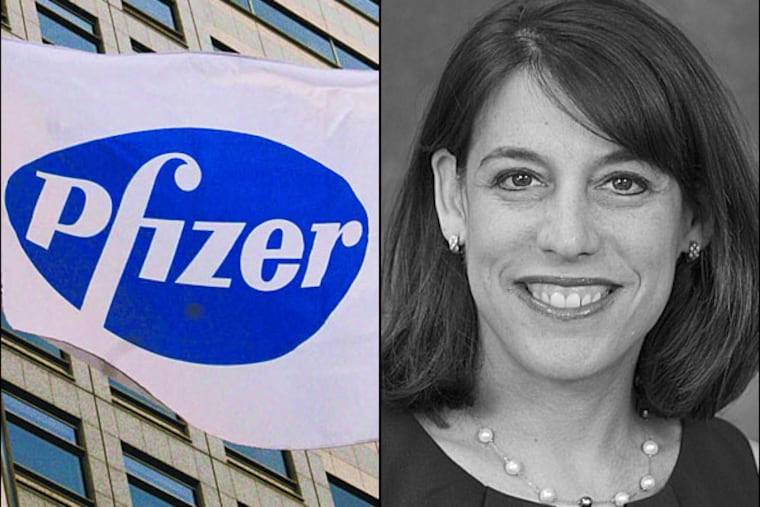Pfizer's Wendy Mayer on approaches to innovation
Almost every organization of any size says innovation is important, but many struggle to apply new ideas successfully. Pfizer is the world's top seller of prescription medicine, and some of its 85,000 employees work in Collegeville, Montgomery County. Its vice president for worldwide innovation, Wendy Mayer, spoke Wednesday as part of panel during MedCityNews' two-day "Converge: Summit for Healthcare Innovation" at the Hyatt at the Bellevue.

Almost every organization of any size says innovation is important, but many struggle to apply new ideas successfully.
Pfizer is the world's top seller of prescription medicine, and some of its 85,000 employees work in Collegeville, Montgomery County. Its vice president for worldwide innovation, Wendy Mayer, spoke Wednesday as part of panel during MedCityNews' two-day "Converge: Summit for Healthcare Innovation" at the Hyatt at the Bellevue.
Mayer's five-person panel addressed the question: "How Can You Innovate in a Big Shop?"
Mayer has two degrees, including an MBA from Cornell University. After a yearlong fellowship at Northwestern Memorial Hospital in Chicago and almost two years with Deloitte, she joined Pfizer in 1997 in its market-analytics department.
Here are some of her comments from the panel discussion and an interview afterward. A longer version can be found on inquirer.com/phillypharma.
Question: Why is your organization interested in innovation?
Mayer: Innovation with regard to developing new drugs has always been a core part of the success of our business. What's newer for our organization is a focus on innovation beyond drug development. How do we innovate our business model? What's driving that is the market is changing. You can cut back, but we often say that you need to do more with less or do less with less, but either way, you have less. But you can only do that so far, and we've come to the realization that we need to do things differently.
Q: How many are in your group?
Mayer: We are a corporate function, so we sit above the business units and report directly to our executive leadership team. We are small and mighty. There are five of us. We extend the capabilities of our team through what I thought was an innovative approach of bringing "fellows" on board. There are parts of the company that have their own innovation teams, such as manufacturing. We try to connect the dots.
Q: Can you explain more about the fellows program and how you get buy-in from employees and their managers?
Mayer: The job is posted on the regular site that has jobs people can move to across the company. They have to talk to their manager and say, "Would you support me going for six months to that other team?" They would not necessarily take a project back with them. More often, it's the experience and the way to think differently about what is happening with their own projects and departments.
We're very deep into innovation training, and we give them a lot of tools that will help them build on ideas, collaborate with others and be more playful in their thinking, be brave. For managers, part of their role is to develop their teams, so those team members can be better employees for Pfizer overall, not just within that one function.